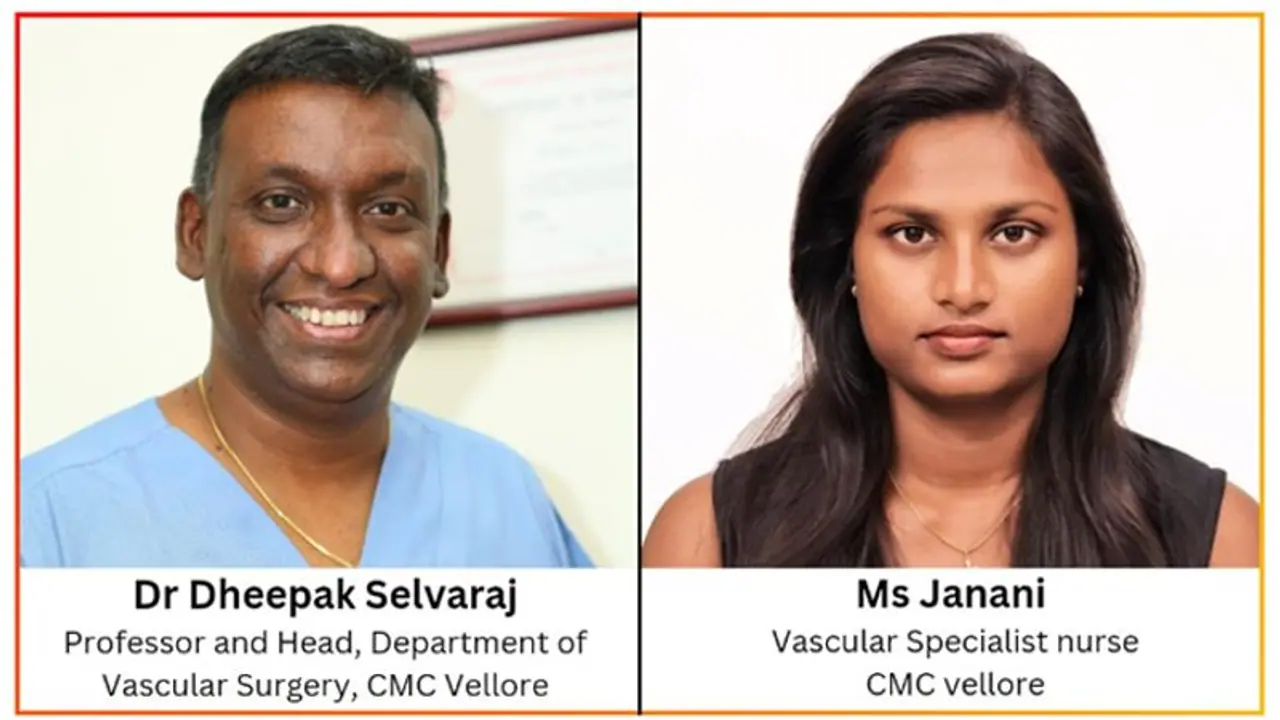Effective management of diseases like peripheral artery disease and diabetes and patient education programs are crucial in preventing complications that can lead to limb amputations.
Introduction
Amputation is a major health burden for individuals, families, communities, and healthcare systems. The word 'Amputation' is a nightmare, especially amputation from a sudden injury, causing emotional distress. It affects personal and family dynamics and leads to various physical, emotional, and psychosocial issues. In India, it has a serious economic impact limiting work and life quality. An estimated 13.23 million global amputations were reported in a study from 2019 -2023, with an age-standardized incidence rate of 171.23 per 100,000 and a global prevalence of around 57.7 million amputees.
Achieving an "Amputation-free world" is challenging and that involves addressing related factors that contribute to amputations.

Preventive Healthcare
Effective management of diseases like peripheral artery disease and diabetes and patient education programs are crucial in preventing complications that can lead to limb amputations. Smoking cessation, a healthy diet, a healthy lifestyle, regular health monitoring, meticulous foot care, and timely treatment of limb infections are essential in mitigating the risk of amputation.
Health Awareness
Creating awareness about amputation helps to sensitize people to preventive health care. According to the World Health Organization, patients with diabetes are 10 times more likely to have a lower limb amputation than a person without diabetes. By promoting the awareness that amputation is a complication of untreated or partially treated diabetes and Peripheral Artery Disease, patients can be helped to prevent limb loss. Because limbs can be saved through preventative measures and alternatives to amputation, awareness is extremely crucial.
In spreading awareness join the Walkathon 2.0: Stride Towards a Limb-Saving Future
Let's work towards better Vascular Health and a Brighter, Healthier Future. Every step brings us closer!
The Vascular Society of India invites you to Walkathon 2.0 on 4th August 2024, a dynamic event advocating vascular health and preventing amputations. Just like last year, let's walk united across 34 cities in India, raising awareness for a future free from amputations.
REGISTER NOW and be part of this movement. We look forward to seeing you there!
👉 Join Now: https://bit.ly/vsi-walkthon
Road Safety
Safe driving within the speed limit, enforcing traffic rules, and enhancing road infrastructure are the key factors for road safety and adherence to these can reduce accidents leading to amputations.
Technological Advances
According to Dr Dheepak Selvaraj, Professor and Head, Department of Vascular Surgery, Christian Medical College, Vellore said Technological advances in disease management and accident prevention play a major role. Moreover, the advances in prosthesis technology like haptic feedback, active power, and machine learning for prosthetic control enhance functioning, satisfaction, and overall quality of life. Integrating AI in prosthesis technology improves control and customization and provides a more natural user experience. Advances in prosthetic technology can revolutionize care for prosthetic patients and these technologies should be designed ethically and in consideration of end users.
Community Support and Empowerment
Ms. Janani P, Vascular specialist nurse, CMC Vellore described
many organizations across the world are dedicated to advocating for the rights of amputees and individuals with disabilities. Awareness initiatives and advocacy, including The Rights of Persons with Disabilities Act (2016), National Health Policy (2017), Assistive Devices Scheme, Government health care programs, and Accessible India Campaign (Sugamya Bharat Abhiyan) promote inclusivity and combat discrimination.
Global Collaboration
The International Society for Prosthetics and Orthotics (ISPO) focuses on sharing knowledge, research, and training to improve global amputee care. The World Health Organization's Global Cooperation on Assistive Technology (GATE) ensures equal access to assistive devices, including prosthetics, for individuals with disabilities, advancing technology, care standards, and advocacy for amputees globally.
Conclusion
Achieving an "Amputation-free world" may be ambitious, however concerted efforts across these areas can significantly reduce the incidence of preventable amputations and improve the quality of life for individuals affected by limb loss. Each step towards prevention, education, healthcare access, and technological advancement brings us closer to this important goal.
By Dr Dheepak Selvaraj, Professor and Head, Department of vascular surgery, Christian medical college Vellore.
Ms. Janani P, Vascular specialist nurse, CMC Vellore
